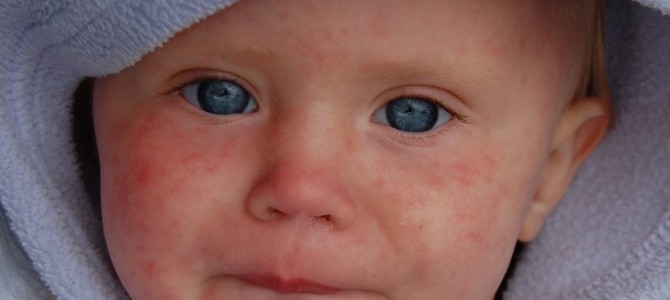Over the last several weeks the topic of vaccines has elbowed its way back into the news. Measles and mumps outbreaks have struck New York City and in California. Headlines on the Daily Beast, Jezebel, and TIME about the outbreaks all thanked the trutheresque disinformation activists known as the “anti-Vaxxers.” Parents and the general public are understandably furious at the risk we’ve all been forced to bear at the hands of the anti-science anti-vaccination movement.
So who are these parents who refuse to vaccinate? Unfortunately, in an attempt to draw crystal clear battle lines, the debate over vaccinations is far too often getting reduced to another front in the “mommy wars.” This amounts to getting the right actors but the wrong screenplay—with important implications for public health.
In the early days of the mommy wars, the primary antagonists were stay-at-home mothers and their career-oriented counterparts. Mothers who chose to take extended leave to stay home with their infants were often treated dismissively by men and worse—with a toxic mix of elitism and thinly-veiled envy—by their fellow mothers who chose to go right back to work.
As the Washington Post’s Tracy Thompson wrote in 1998: “This sudden social demotion is the way many women get inducted into the Mommy Wars …. It involves many different social and moral and financial issues, yet it often boils down to a personal question: How does this child fit into my life, or should my life now fit around this child?”
Even as the issues involving the mommy wars grew in seriousness and scope, the skirmishes began to be treated like the blogging version of an extended catfight. There’s something to the intramural classification of the modern mommy wars, but for this reason the topic of vaccinations shouldn’t be limited to subculture spats.
We cannot place the blame for the anti-vaccination nonsense solely at the feet of “crunchy” or “natural” parents, though there are many in that community who delay or completely withhold vaccinations. Being a somewhat crunchy parent myself (natural birth, cloth diapers, exclusively breastfeeding, cosleeping, etc.), I encounter the sentiment “I feed my kids only organic and non-GMO foods, so I feel safe not vaccinating them” quite frequently. These parents seem to believe that several hundred years ago, before GMOs or pesticides existed, there were no communicable diseases. Other groups of parents, like ultra-religious Jews in Brooklyn, also withhold vaccinations, as well as some Christians. And then there are the former MTV stars like Jenny McCarthy and Kristin Cavallari, who have been public about their fears over vaccines causing everything from autism to asthma to allergies. This diverse group of parents has one thing in common: they are all putting us at risk for a return to the Middle Ages.
Cavallari recently told a talk show host that her decision to not vaccinate was the “best for her kids” and that it was a personal decision. She couldn’t be more wrong—and it’s why this fight isn’t a front in the mommy wars. All of the battles in the mommy wars have one thing in common: the decisions that parents make affect their kids and only their kids. The decision not to vaccinate doesn’t just affect the children who unfortunately are put at risk for deadly diseases by their parents, but they also put the infants and families of others at risk as well. Some anti-vaccination proponents claim “if you’re vaccinated, you’re safe, so why do you care what I do?” This is why. Fourteen of the 32 measles cases in California this year were children who were intentionally not vaccinated for ideological (not medical) reasons. These children fueled an outbreak that put infants too young for the vaccine (like mine), and individuals with compromised immune systems at risk. In Brooklyn last year a woman who was exposed to the measles virus miscarried her child, a known complication of the disease.
While many in the anti-vaccination movement would lead you to believe this is just another one of the topics that moms fight out between them, we can’t let our fear of confrontation stray us from the conversation. The battles of the mommy wars–breastfeeding over formula, staying at home with children or going back to work, how we feed or diaper our children, how and where they sleep–all have one aim in common: the minimization of harm. On the topic of vaccines, that isn’t always the case. Not only could their children be harmed or killed during their childhoods, but others could as well.
That’s an unacceptable risk to take on behalf on one’s child, and an absolutely deplorable one to take on behalf of someone else’s. We owe it to our children–all of our children–to speak out against this dangerous and misguided parenting choice before more are infected with horrifying diseases that were extinguished decades ago. Choosing not to vaccinate is not yet another anodyne trend in personal parenting. It’s not a quirk; it’s a menace—and a growing one at that.









